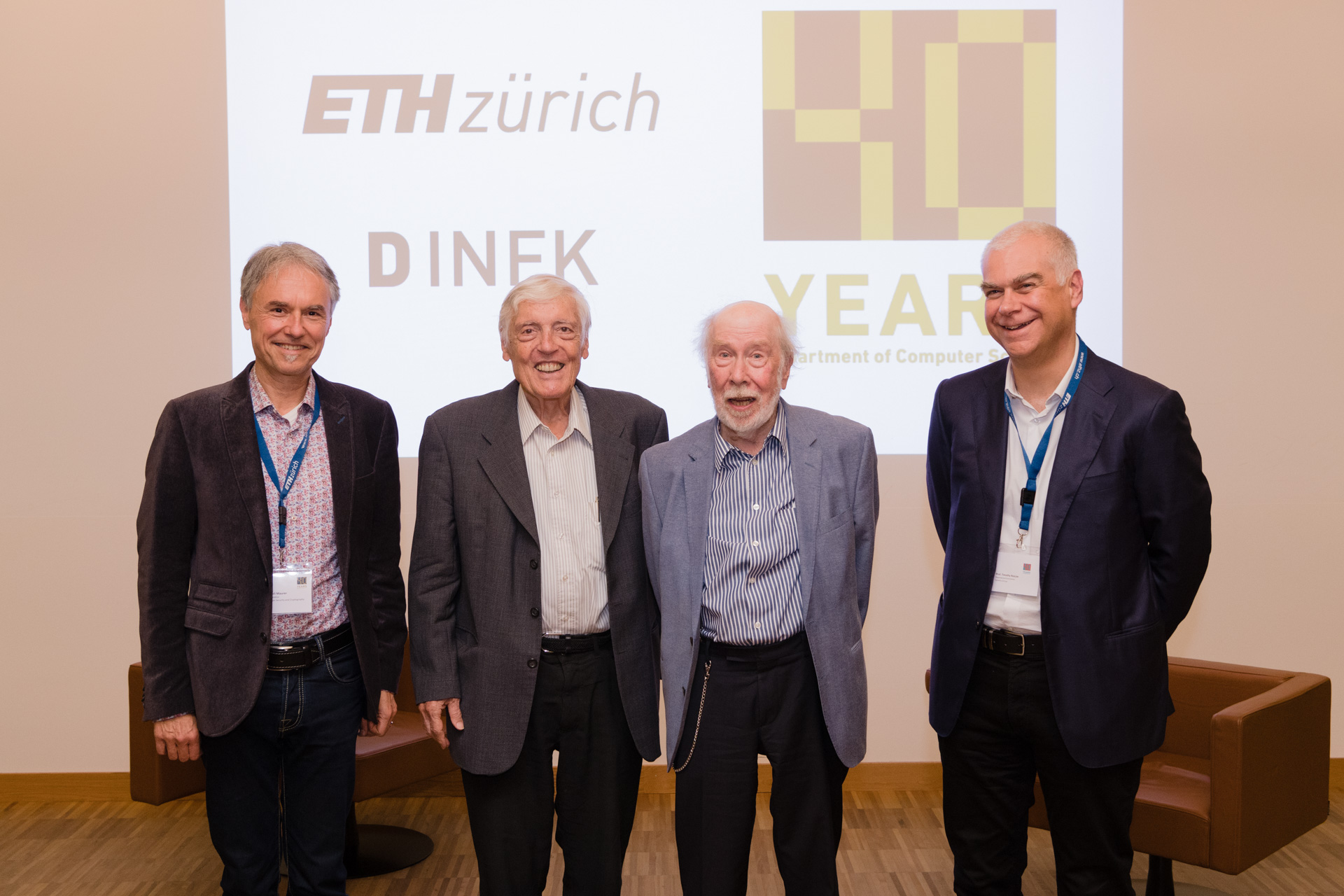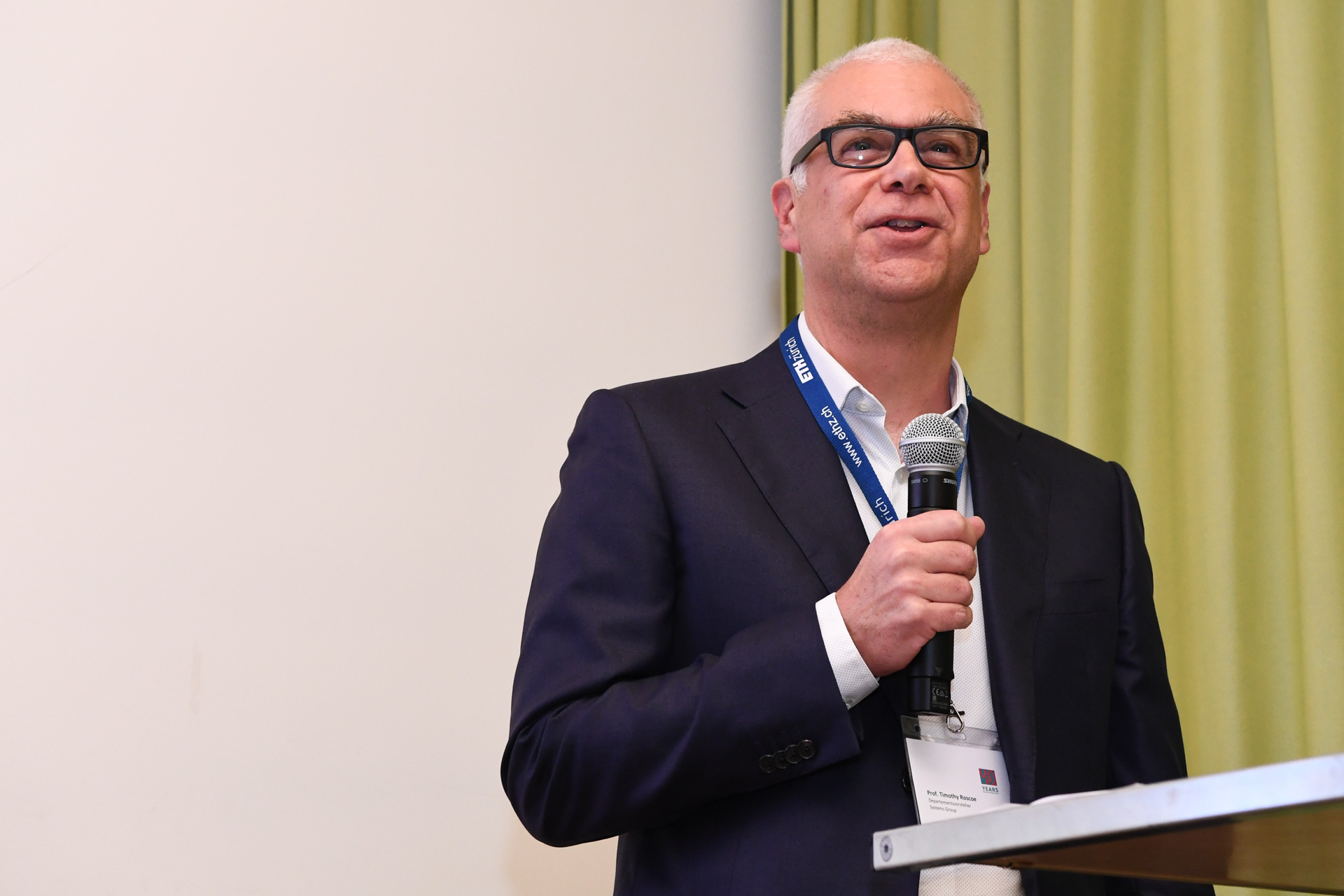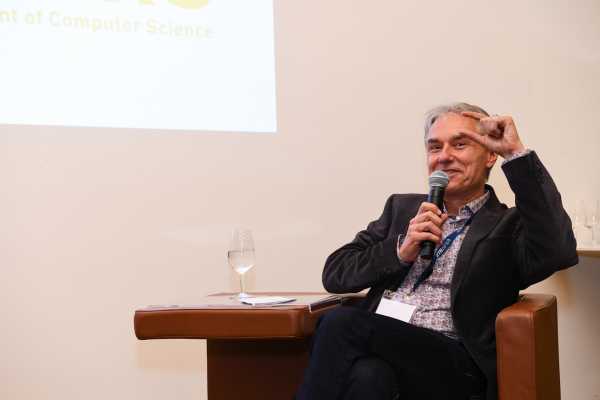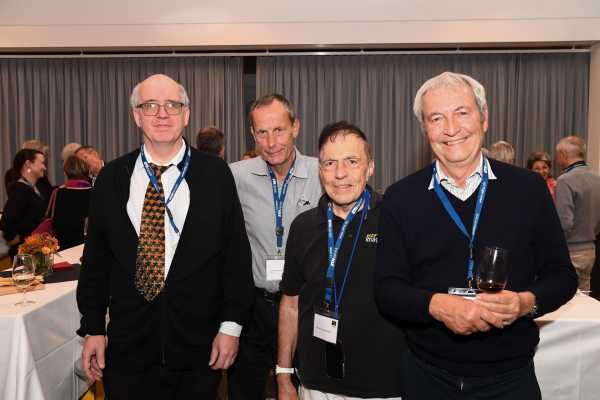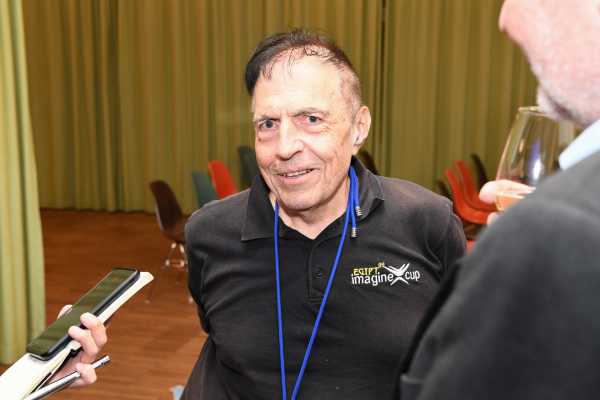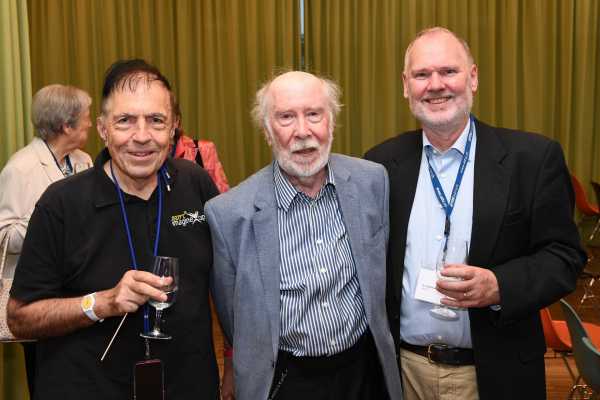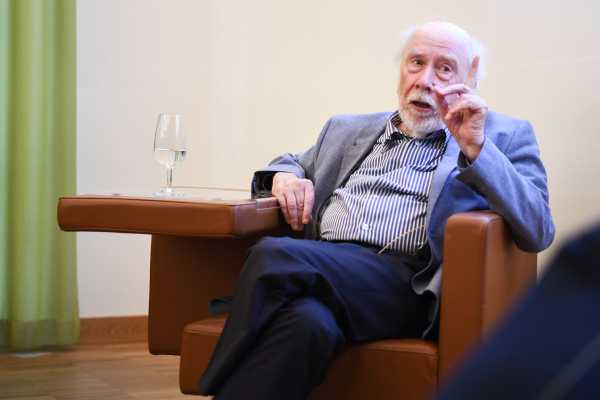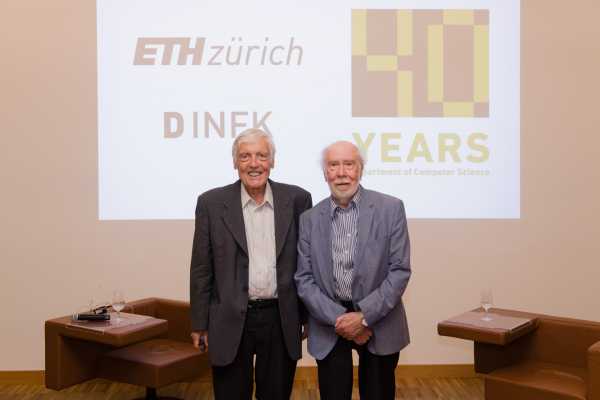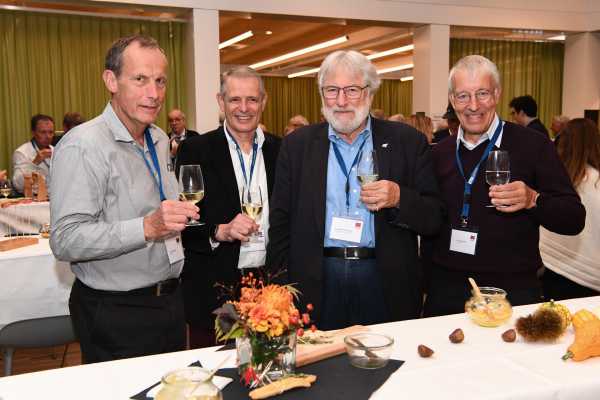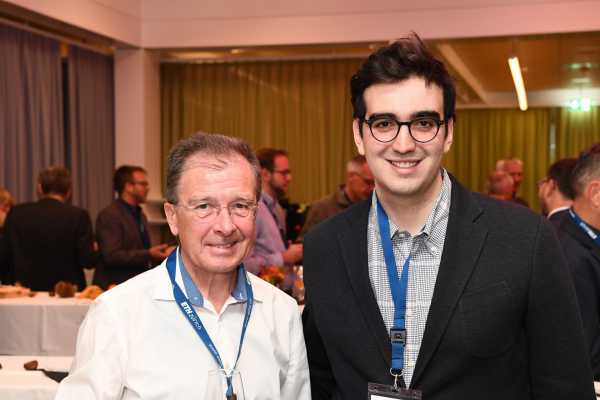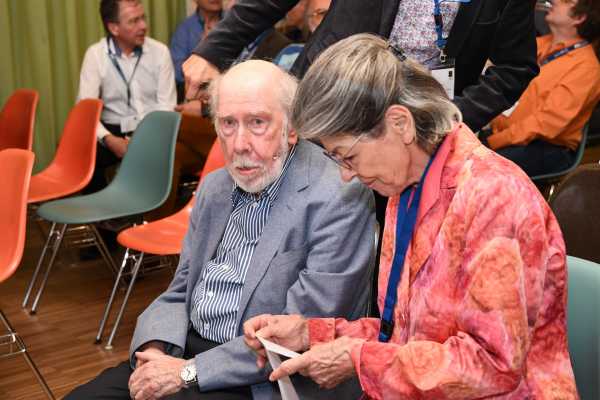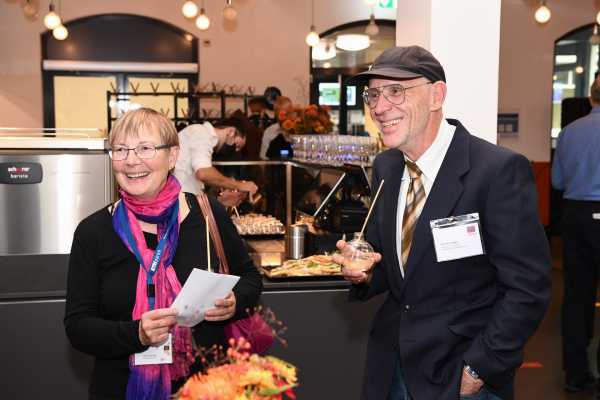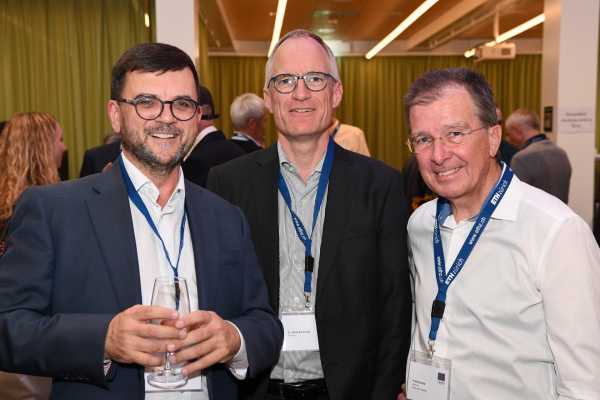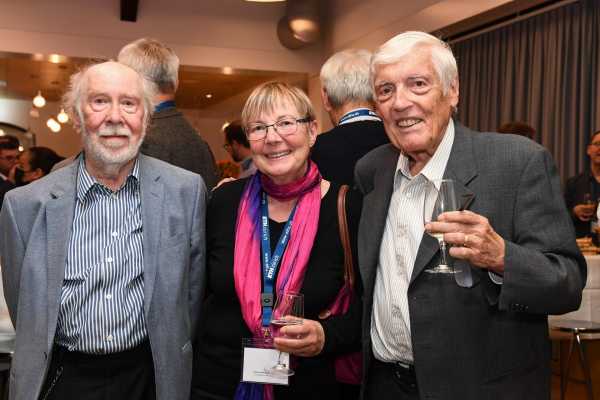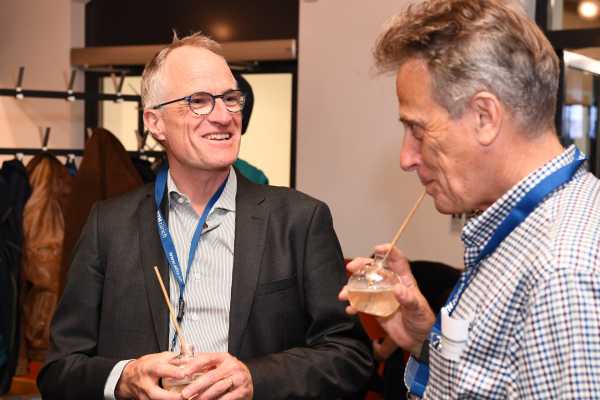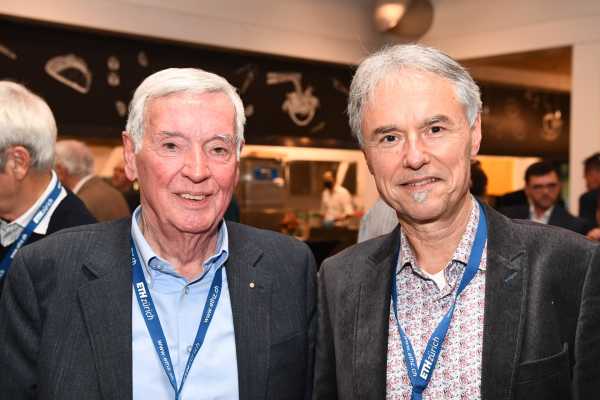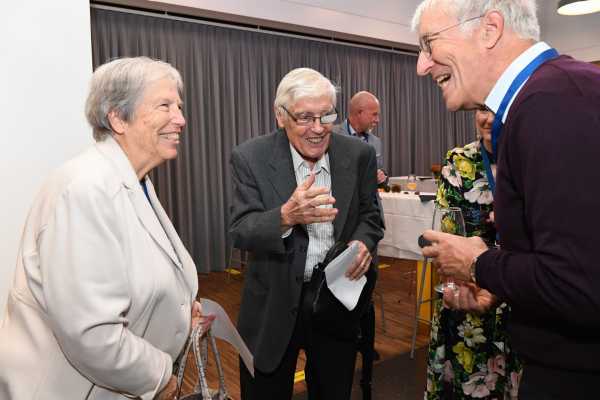40 of the first D-INFK alumni, former doctoral students and employees, as well as some of the first D-INFK professors, met on Tuesday, October 12, at the CAB restaurant food&lab to celebrate the 40th anniversary of "their" department. There, they also encountered the current D-INFK generation: representatives of student and scientific staff associations as well as some current professors.
Professors emeritus Niklaus Wirth and Carl August Zehnder attended the get-together as guests of honour. In a discussion panel, the department founders recounted how they, together with Peter Läuchli and Jürg Nievergelt, launched the computer science curriculum at ETH Zurich in 1981. The fledgling science faced significant resistance from other parts of the university. "People weren't against computers per se," Wirth recalls. "They just said that programming is something an engineer learns on the side and not an academic discipline." Originally, the founders wanted to introduce the degree programme as early as 1970. "The first opposition came from mathematics and physics," Zehnder says. "We were denied all kinds of things, including our status as a science."
Peter Ursprung, Zehnder's former doctoral student, was still in the mathematics department at the time and sat on the departmental council as a student representative. "We were discussing whether there should be a separate degree course in computer science. I fought for it, but my fellows and I were outnumbered. The majority was against it," he recalls. "On the 25th anniversary of the computer science programme, I ran into a mathematics professor from back then. He said he had been wrong to oppose it."
In his address, Department Head Timothy Roscoe also pointed out how much the tables have turned. The strong growth of D-INFK is just one indication of this, he said. "Virtually all other departments at ETH Zurich are now doing what we would call applied computer science," Roscoe stated. "And we're training them for it by offering computer science classes for other disciplines."
